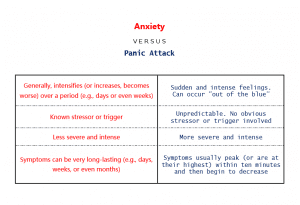
Is It Okay to Vent?
February 20, 2018 in Educate Yourself
Venting is a way of verbally airing one’s frustrations with others. It can be super emotional and intense. And depending on the way you handle it, venting might feel like a ton of bricks was taken off your chest, or it might be unpleasant and hurtful.
So is it okay to vent? And if so, when and how?
If you need to get something off your chest that is overwhelming you, distracting you, hurting you, or eating away at your mind, it can be okay to vent.
As long as you have a friend, family member, or other trusted person who is willing to listen to your strong feelings, there is no right or wrong time to find someone to talk to about something that’s bothering you, and this is something people tend to forget.
If you are struggling and need to let off steam, do not be afraid to reach out to someone you trust!
People tend to hide their questions and problems, afraid to come off as pushy or annoying to those around them. Keeping feelings bottled up can lead to all sorts of physical and emotional problems down the road. If you approach someone honestly and with courtesy, and explain that you need a listening ear as you vent some frustration, it’s okay as long as they’re also okay with it.
And then, after you’ve vented, maybe try to let your feelings out bit by bit, so they don’t build up so much.
If you want to know more about venting feelings, here is an article that talks about six ways venting is helpful and six ways it can be not-so-good. (One of the best tips is: it’s probably not the greatest idea to vent to the person who is annoying you at the moment. Find someone else, preferably someone who doesn’t even know that person.)
Remember—you are loved and you have worth, and the way you feel is not “stupid.” You are a human being with emotions, just the same as myself, or the person living next door to you. We are all connected.
What are some times you have vented? How did they go, for you and for the person listening? Is venting in your toolbox of strategies for handling stress? Tell us in the comments below.




Recent Comments